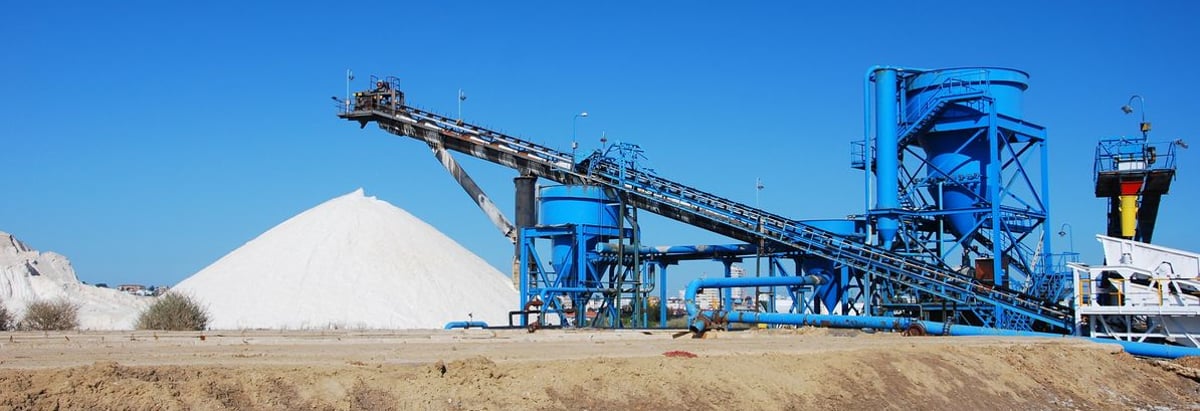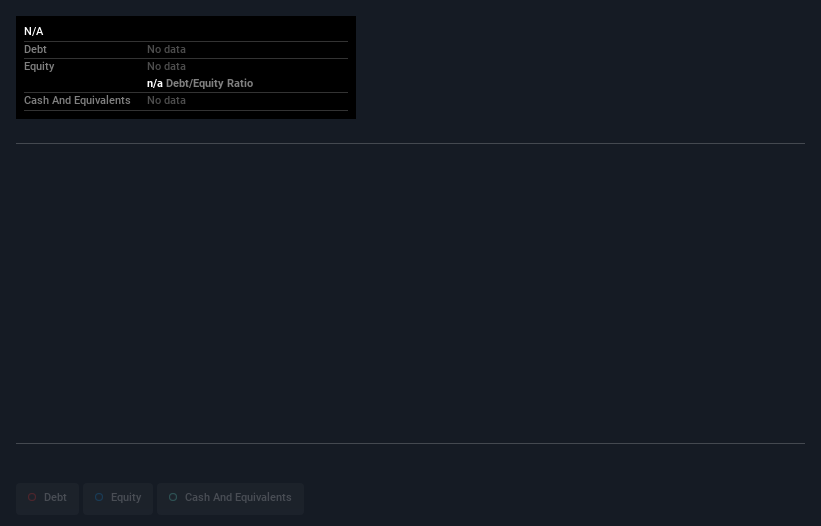- South Africa
- /
- Metals and Mining
- /
- JSE:ARI
Here's Why African Rainbow Minerals (JSE:ARI) Can Manage Its Debt Responsibly

Warren Buffett famously said, 'Volatility is far from synonymous with risk.' So it might be obvious that you need to consider debt, when you think about how risky any given stock is, because too much debt can sink a company. We can see that African Rainbow Minerals Limited (JSE:ARI) does use debt in its business. But the more important question is: how much risk is that debt creating?
When Is Debt A Problem?
Debt assists a business until the business has trouble paying it off, either with new capital or with free cash flow. Ultimately, if the company can't fulfill its legal obligations to repay debt, shareholders could walk away with nothing. While that is not too common, we often do see indebted companies permanently diluting shareholders because lenders force them to raise capital at a distressed price. Having said that, the most common situation is where a company manages its debt reasonably well - and to its own advantage. The first step when considering a company's debt levels is to consider its cash and debt together.
See our latest analysis for African Rainbow Minerals
How Much Debt Does African Rainbow Minerals Carry?
As you can see below, African Rainbow Minerals had R242.0m of debt at June 2023, down from R321.0m a year prior. However, it does have R10.0b in cash offsetting this, leading to net cash of R9.78b.

How Strong Is African Rainbow Minerals' Balance Sheet?
The latest balance sheet data shows that African Rainbow Minerals had liabilities of R3.73b due within a year, and liabilities of R6.25b falling due after that. Offsetting this, it had R10.0b in cash and R5.41b in receivables that were due within 12 months. So it can boast R5.44b more liquid assets than total liabilities.
This surplus suggests that African Rainbow Minerals is using debt in a way that is appears to be both safe and conservative. Due to its strong net asset position, it is not likely to face issues with its lenders. Simply put, the fact that African Rainbow Minerals has more cash than debt is arguably a good indication that it can manage its debt safely.
It is just as well that African Rainbow Minerals's load is not too heavy, because its EBIT was down 39% over the last year. When a company sees its earnings tank, it can sometimes find its relationships with its lenders turn sour. The balance sheet is clearly the area to focus on when you are analysing debt. But it is future earnings, more than anything, that will determine African Rainbow Minerals's ability to maintain a healthy balance sheet going forward. So if you want to see what the professionals think, you might find this free report on analyst profit forecasts to be interesting.
Finally, a business needs free cash flow to pay off debt; accounting profits just don't cut it. African Rainbow Minerals may have net cash on the balance sheet, but it is still interesting to look at how well the business converts its earnings before interest and tax (EBIT) to free cash flow, because that will influence both its need for, and its capacity to manage debt. During the last three years, African Rainbow Minerals generated free cash flow amounting to a very robust 100% of its EBIT, more than we'd expect. That positions it well to pay down debt if desirable to do so.
Summing Up
While it is always sensible to investigate a company's debt, in this case African Rainbow Minerals has R9.78b in net cash and a decent-looking balance sheet. The cherry on top was that in converted 100% of that EBIT to free cash flow, bringing in R8.5b. So is African Rainbow Minerals's debt a risk? It doesn't seem so to us. The balance sheet is clearly the area to focus on when you are analysing debt. However, not all investment risk resides within the balance sheet - far from it. For example African Rainbow Minerals has 2 warning signs (and 1 which doesn't sit too well with us) we think you should know about.
At the end of the day, it's often better to focus on companies that are free from net debt. You can access our special list of such companies (all with a track record of profit growth). It's free.
New: Manage All Your Stock Portfolios in One Place
We've created the ultimate portfolio companion for stock investors, and it's free.
• Connect an unlimited number of Portfolios and see your total in one currency
• Be alerted to new Warning Signs or Risks via email or mobile
• Track the Fair Value of your stocks
Have feedback on this article? Concerned about the content? Get in touch with us directly. Alternatively, email editorial-team (at) simplywallst.com.
This article by Simply Wall St is general in nature. We provide commentary based on historical data and analyst forecasts only using an unbiased methodology and our articles are not intended to be financial advice. It does not constitute a recommendation to buy or sell any stock, and does not take account of your objectives, or your financial situation. We aim to bring you long-term focused analysis driven by fundamental data. Note that our analysis may not factor in the latest price-sensitive company announcements or qualitative material. Simply Wall St has no position in any stocks mentioned.
About JSE:ARI
African Rainbow Minerals
Through its subsidiaries, operates as a diversified mining and minerals company in South Africa, Malaysia, and Switzerland.
Excellent balance sheet and fair value.
Similar Companies
Market Insights
Community Narratives


